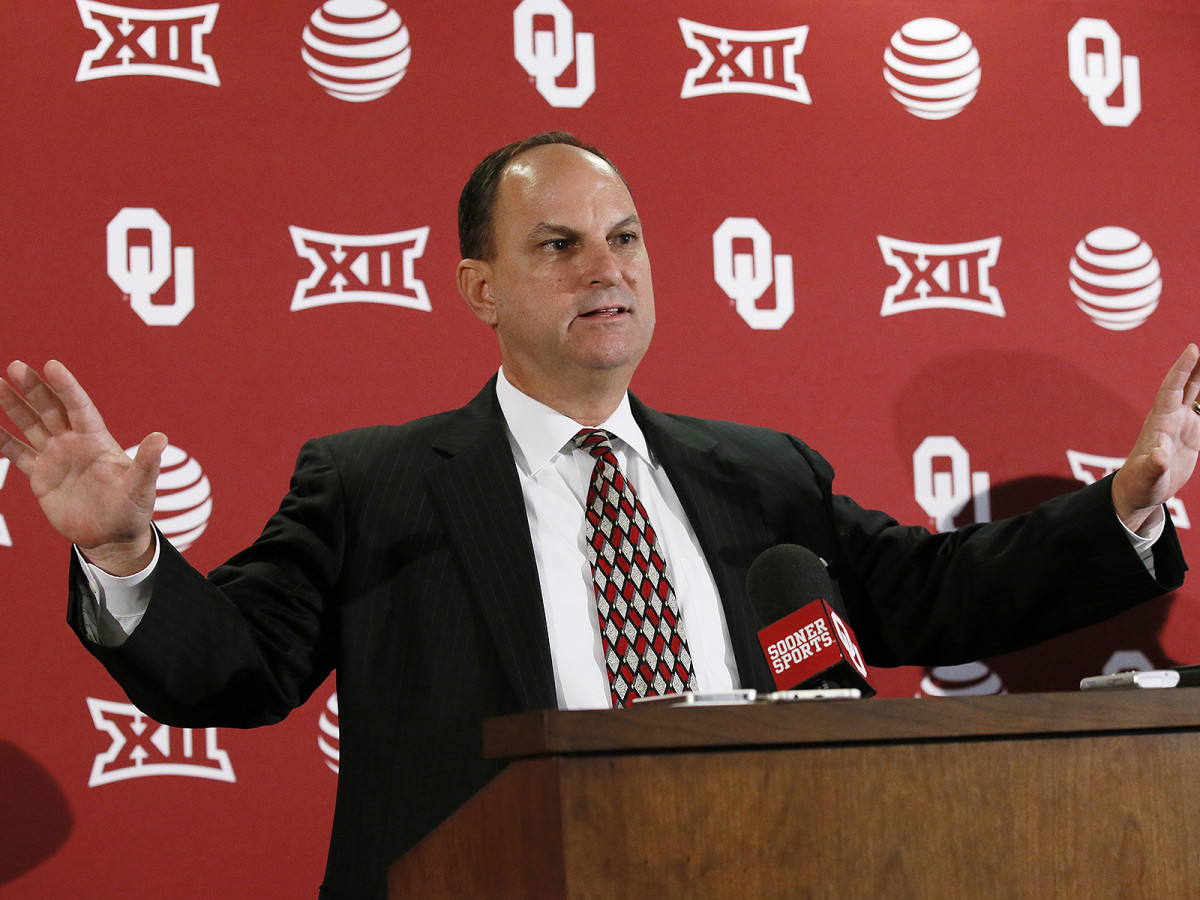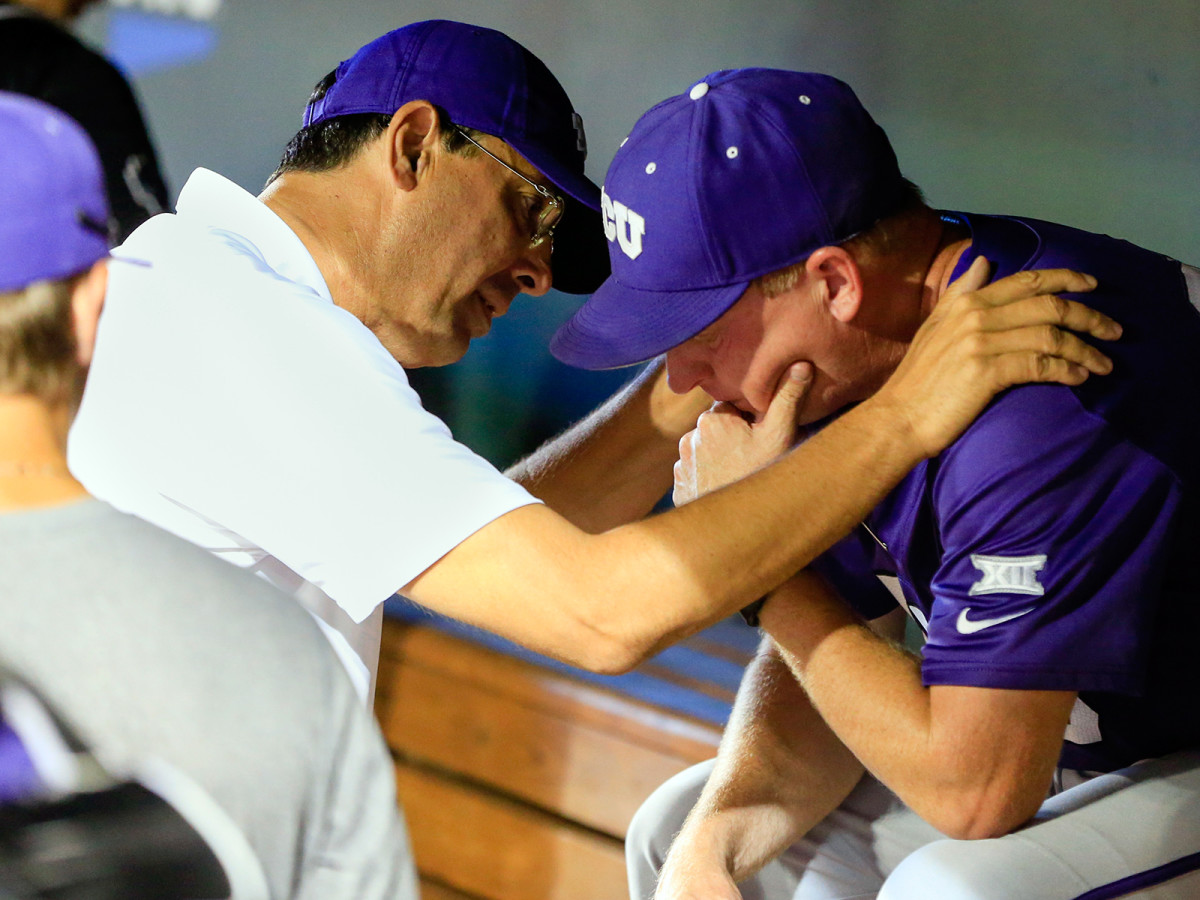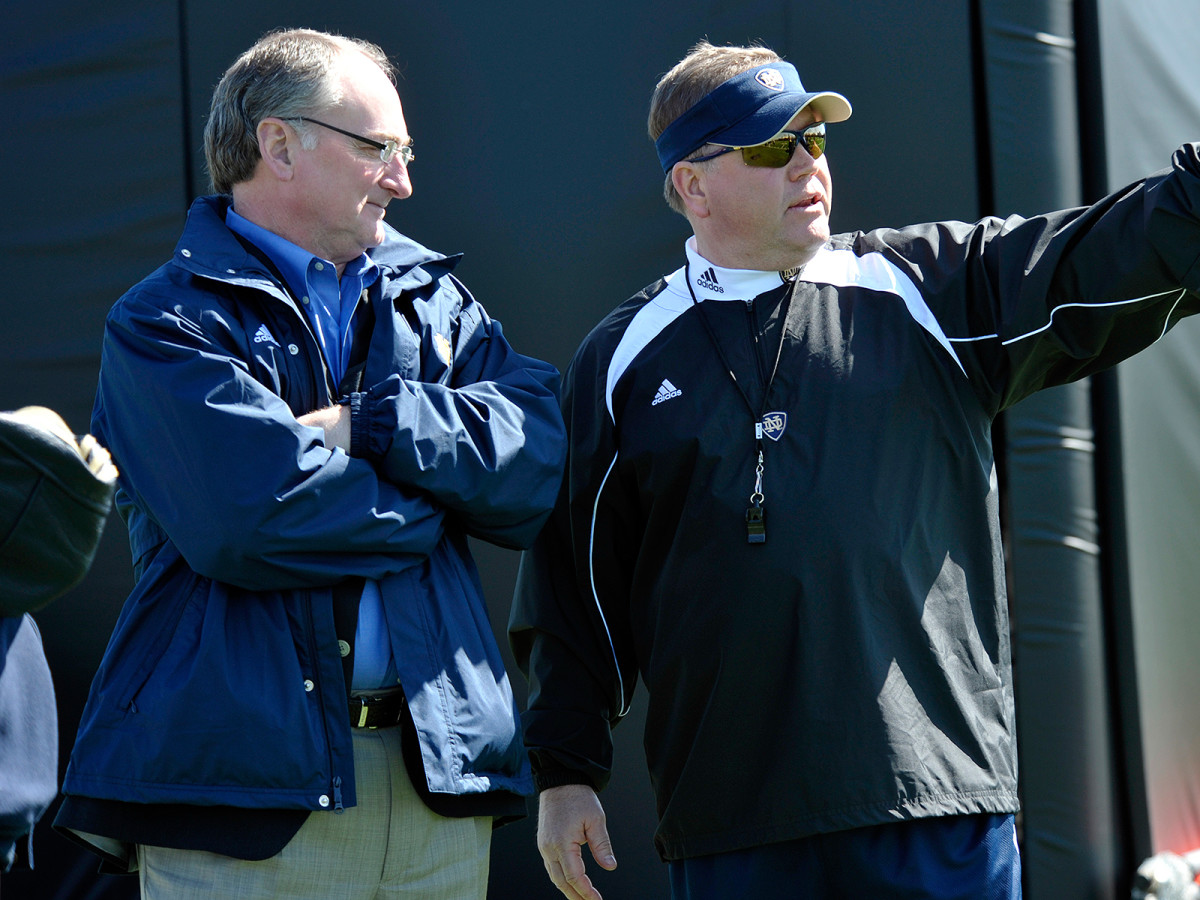Who's the Best Athletic Director in the Country?

I’ve covered college sports for 20-plus years and have often dealt with the inner workings of the games, but one area I rarely thought much about was the people at the top: the athletic directors. I knew what ADs generally did and I knew who most of them were, but when it came to who the good ones were and, more specifically, what made them good at their jobs, I didn’t have a lot of answers. So about a year ago, I began a project to get a better handle on what makes a good athletic director and who the best ones are. I decided to conduct two anonymous surveys: one with 15 of my media peers who cover college sports, both on TV and in print. The second was with 10 ADs themselves.
I asked two basic questions of each group: What factors determine how effective these folks are at their jobs? And who are the best three ADs in the business? I did this on a point system, giving three points for a first-place vote; two for a second and one point for a third. Below are the results from both surveys, along with quotes from voters.
• SI’s 2017 Preseason All-America Teams | Top 25 | Rival coach scouting reports

The media’s top athletic directors
Joe Castiglione, Oklahoma (16 points): “Good outward reputation and has both maintained and built within the department, with a good number of sports finding consistent success. Seems to be a quality fund-raiser as well—especially important with the resources available at their in-state rival school.”
Mark Hollis, Michigan State (15): “I liked it better when Hollis sort of stayed in the background and did big things without fanfare. Guy is a lifer at MSU and has completely transformed that campus’s facilities and sports teams.”
Greg Byrne, Alabama (10): “Sharp. Creative. Basically groomed to be one of the nation’s premier athletic directors his entire life. Puts in nearly the same effort with baseball or swimming as he does football. Cares about accountability and the culture he shapes. Very approachable.”
Jeff Long, Arkansas (8): “The blemish for Long is an obvious one: Arkansas hasn’t won really big in football or men’s basketball. My biggest appreciation for Long is that he took a stand and fired Bobby Petrino after he lied and embarrassed the university. Not every AD would do that given Petrino’s success at the time. It took some courage. Arkansas is never going to be a great destination point for many coaches, yet Long has hired some pretty solid ones in Bret Bielema and Mike Anderson. I also like that Long doesn’t take himself too seriously and interacts with fans on Twitter.”
Jack Swarbrick, Notre Dame (7): “I just think Swarbrick is ridiculously smart and could be running college sports. He’s a fresh mind who came from outside college sports, meaning he’s not inclined to do the same old thing. He’s a rare AD who has publicly said college athletes should be paid through group licensing for use of their name. He’s keeping two of the best coaches around happy [Brian Kelly and Mike Brey] despite interest from other schools.”
Chris Del Conte, TCU (7): “TCU would’ve been an incredible return on investment at the beginning of Del Conte’s reign, from facilities, to coaches, to success in many sports, to overall university appeal and trajectory.”
Jim Phillips, Northwestern (6): “[Men’s basketball coach] Chris Collins and [women’s basketball coach] Joe McKeown were perfect hires, and he has kept [football coach Pat Fitzgerald] at a below-market salary. NU is about to get ginormous facilities upgrade in all sports. Players feel they have a personal relationship with him because he’s tireless, driving four hours for a cross-country meet. He handled union movement perfectly by publicly supporting Kain Colter while working to squash it behind the scenes.”
Kevin White, Duke (6): “Smart and decisive, sincerely cares about amateur athletics and its role in helping young men growing into responsible adults—a far too overlooked factor in the job description. A guy that I truly believe is in it for the right reasons and bases everything he does off it. It’s about the athletes, and giving them everything they need to succeed without making concessions for those who consistently make mistakes.”
Tom Jurich, Louisville (3)
Scott Stricklin, Florida (3)
Mack Rhoades, Baylor (2)
Gene Smith, Ohio State (2)
Whit Babcock, Virginia Tech (2)
John Currie, Tennessee (2)
Bernard Muir, Stanford (1)

The athletic directors’ top athletic directors
Joe Castiglione (18 points): “I don’t know anybody that says a bad word about Joe Castiglione and the amount of success they’ve had one and off the field, and what they’ve done there since he’s been there is remarkable.”
Chris Del Conte (8): “He’s got the gift of gab and he really understands the big picture.”
Kevin White (7): “He is committed to the core of the student-athlete experience. He doesn’t ever lose sight of that. They think of and share a vision that is broad-based.”
Gene Smith (4)
Jim Phillips (4)
Jeff Long (3)
Scott Stricklin (3)
Todd Stansbury, Georgia Tech (3)
Bubba Cunningham, North Carolina (2)
Whit Babcock (2)
Mark Hollis (2)
Greg Byrne (1)
Dan Guerrero, UCLA (1)
One other name a few ADs cited was recently retired Florida AD Jeremy Foley. “He made decisions that were always best for Florida athletics, never in the best interest of himself and he set a strong tone and culture of excellence.”
The most important AD criteria, according to the media
Hiring and retaining coaches/staff (34 points): “Clearly, their most important role is hiring the right football and men’s basketball coaches and then keeping them happy and focused.”
“I respect athletic directors who don't rely on search firms and make hires themselves.”
Fundraising (25): “Smart ADs are great salespeople. They know how to leverage their assets, and they understand the business of college athletics.”
Accessibility/Communication skills (10): “This is the tricky one for the long haul. It’s about being able to say no to powerful coaches or boosters and recognizing when a little problem is threatening to metastasized into something larger (hello, Baylor).”
Crisis management (8): “I’m also big on ADs holding their employees, players and themselves accountable. That includes meaning the AD is accessible to the public, doesn’t just hide behind nonsense statements and doesn’t put himself out there simply to get attention. When times are tough, does the AD make the right call and/or explain himself or herself? Properly handling a crisis is one of the biggest tasks for an AD these days. Look at [former Baylor AD] Ian McCaw and how that worked out.”
Culture building (4): “You have to make people proud of what they have and in a sense what they don’t have.”
Innovation/creativity (4): “Thinking outside the box is also a key trait for me, especially with the need to find different ways to sell out stadiums and pay for the increasing costs associated with athletics.”

The most important AD criteria, according to ADs
Culture building (18): “Everything starts with your ability to develop a culture of integrity and accountability and how well you communicate, and then everything falls from there.”
“If you have the right culture, you’ll be able to attract the right coaches.”
“You can look at the kind of experiences the young men and women are having in your program and also the level of academic success they are having.”
Hiring and retaining coaches/staff (12): “It’s not just about being able to hire good coaches. It’s also really important about knowing when to fire those that are a bad fit.”
Fundraising (9): “You hire good people/personnel, you win football games and then it’s easier to raise money.”
Crisis management (5): “You’d better be flexible and not someone who gets stuck in their ways because it seems like every day arrows are coming at you.”
